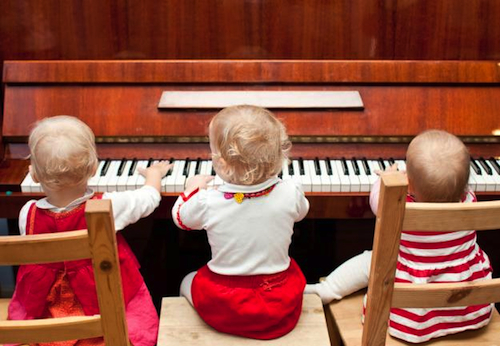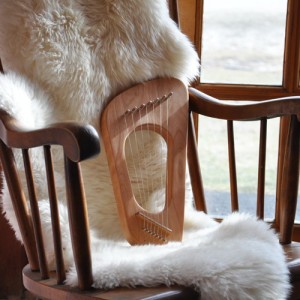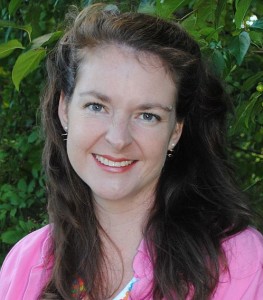Below is reprint of an article I wrote a few years ago. I thought I would repost it here, since this is a perennial question that I am asked by parents of three- to seven-year-olds. Is there a perfect time to start music lessons? Here are my thoughts.
I am a trained Waldorf early childhood teacher and have also completed training as a “Music Together” teacher (a music and movement program for preschoolers and their parents) through the Center for Music and Young Children in Princeton, NJ. In addition, I am a Suzuki parent and a strong supporter of Suzuki music education. I have been interested in comparing the similarities and differences between Suzuki and Waldorf pedagogy ever since discovering how much they share in common.
In spite of the number of similarities in approach, one fundamental difference between the two pedagogies is regarding the age at which a child should begin formal music instruction. Suzuki students are encouraged to begin instrumental lessons as early as age two or three. On the other hand, students in a Waldorf school do not begin lessons with string instruments until third or fourth grade. My personal opinion is that Suzuki, for many children, starts too early, and that Waldorf schools may start too late. Based on my research and observation, I believe that the age of seven may be a more appropriate age for most children to begin private music lessons — for many of the same reasons that make seven the ideal age for a child to begin formal, academic learning at school, according to Waldorf philosophy.
In Waldorf pedagogy, formal academic learning does not begin until, ideally the age of seven. This comes after a period of intense growth during the first seven years of life, after which, according to Rudolf Steiner, the founder of Waldorf education, the child’s “etheric” or life forces are freed up for more cognitive pursuits. As a child of seven is better able to sit and focus on formal “lessons” than a younger child, so a child of this age would be better able to focus on formal music instruction, and to be capable of practicing. I have questioned many different music teachers – Suzuki teachers, traditional music teachers and Waldorf music teachers — on whether there is a great advantage to starting children on an instrument as early as three- to five-years old and, by and large, most teachers I’ve talked to seem to agree that children who start when they are older (say, seven or eight) are not at a disadvantage; they are usually able to catch up quickly with the children who have been taking lessons since they were much younger.
Within a few months of starting cello, I observed that my seven-year-old quickly caught up to the same place as another seven-year-old boy in his class who’d been playing for a full two years. I would not describe my son as musically gifted or precocious, but I believe at seven he was simply ripe and ready for formal music instruction and was able to move along quickly.
I think it is unnatural for a child under seven to be asked to sit down and practice an instrument daily, no matter how short or playful the practice session. I feel strongly that children under seven should be moving, playing and engaged in their imagination without the pressure or stress of practicing, or worse, performing. They are learning an enormous amount—taking in the world through their senses, developing their imaginations through play and the experience of life. This short and precious period of childhood should be free from the pressures of performing and feeling the need to please others.
On the other hand, most Waldorf schools don’t start teaching strings until third or fourth grade. I worry that this is too late. Recent brain research indicates that there is a musical learning “window” of opportunity that closes around the age of nine (similar to the “window” for language acquisition). Based upon my research and observation, I believe that it is more difficult, though certainly not impossible, for children to become proficient at an instrument if they start after the age of nine. Waldorf students are, of course, learning to play the pentatonic flute, and often the soprano recorder, before the age of nine, which is absolutely beneficial and helps to develop the student’s musical ear. There are many Waldorf teachers who would argue that learning to play a stringed instrument or the piano would be inappropriate for a child under nine. I do not agree with them. My own experience with my children has been entirely rewarding and positive, having started them with music lessons at ages seven and eight.
I also recommend waiting until a child begins to show an interest in learning to play an instrument before offering private music instruction. Children are much more likely to be self-motivated when there is a genuine and personal interest in learning to play an instrument. I have observed very few children who have expressed an interest in learning to play an instrument before the age of 5-7. Of course, there are some children who really are musically precocious and may, in fact, prove to be prodigious musical students. If your child is relentless in demanding to learn a particular instrument, I would advise listening to them and taking advantage of his interest.
If you decide to pursue music education for your child under seven I would highly recommend – no, I would BEG you – to find a Suzuki teacher. A good Suzuki teacher, like a good Waldorf, teacher, teaches out of imitation and in a playful, imaginative way. The emphasis should be on the process, not on the product.
Another similarity between Suzuki method and Waldorf education is that children are taught to play beautiful music by memory and ear before they are able to read music — just the way Waldorf students are able to recite beautiful poetry by heart before they are able to read or write. Learning to play music precedes learning to read music, just as in human development learning to speak always precedes learning to read and write. Learning to read music should not be attempted before the child is able to read language.
Readers of Dr. Suzuki’s book Nurtured by Love, will come across much philosophy that is similar to Rudolf Steiner’s. (It is interesting to note that both lived in Germany during the same period of time.) Dr. Suzuki emphasizes that it is far more important for a child to strive to become a beautiful person on the inside, than the most technically proficient musician. By nurturing beautiful feelings in the child, beautiful music will be produced.
The most important thing one can do musically for a child under seven is to expose them to lots and lots music, especially the human voice. Sing to them and with them all the time! Sing even if you think you can’t — your child will not be critical, and will appreciate your effort more than you can imagine. I think it’s also of great benefit to let children hear live music being played so that they learn that music is something that human beings make, and are not just mechanical sounds that come out of an electronic box. Research indicates that that listening to music (and lots of different kinds and tonalities) early in life is what develops a child’s musical ear. So that even if a child doesn’t begin formal music instruction until age nine or later, by having been exposed to many types of music and different qualities of tone, that child will still have developed musically during her early childhood.
Sera Jane Smolen, Ph.D., a cellist who has also taught music in a Waldorf school and wrote her thesis on a comparison of Waldorf and Suzuki methods, once told me that no world-class musician (that is to say, the Yo Yo Ma’s and the Emanuel Ax’s of the world) ever started music instruction later than the age of five. This statement is likely to give many parents pause. But then she asked me, “Is our goal to raise world-class musicians, or Martin Luther Kings?” Do we offer our children music lessons because we want to produce a prodigy, or do we do it to nurture a love of music in child who may fulfill Dr. Suzuki’s vision of bringing about world peace through music?
Is your child taking music lessons? What instrument is s/he learning, and at what age did s/he start?




12 Comments
Hi,
I love this post, I find it very useful. Thanks for sharing your experience!
/Lola
Thanks so much for the info! That is so helpful. My little one who is now 8 wants so much to learn to play the piano…you’ve made me feel much better about getting him lessons now instead of waiting until 9 or 10.
What a great reursoce this text is.
Woo hoo! Great timing, Sarah. My daughter, who has just taken a handful of violin lessons, is still too wiggly and distracted for private instruction, even though she will turn 7 this week. Our family will attend Maine Fiddle Camp later this month, which I’m sure will reveal whether or not to wait or step along with the violin. I love the points that it’s best if the child has a genuine desire for lessons, and that we really don’t need to be producing professional musicians, but lovers of music and peace. Thank you!
Thanks Sarah for the information. My daughter has been attending a small class of Kindermusik since the age of 2. What I liked the most about it was their philosphy of play, process not performance, and their goal of making musical children not child musicians. I loved it so much I took on the business when the old educator left our small community. She is now 5 years old and I am thinking of private instruction for her in the future, say around 7 (but thanks for saying that it can wait till later). We have percussion, tuned percussion, string and wind instruments in our house and I will let her interest guide me to which instrument she eventually chooses to learn first.
I’m wondering, what is a recommended age for starting to play the guitar? And what are the thoughts behind learning only melodic tunes as opposed to chords.
Thank you!
Ruth
Good question, Ruth, regarding melody vs. chords. I hadn’t given this much thought previously, but I think that most Waldorf music teachers would recommend learning to play melody before chords. Before third grade, children are taught to sing and play melody. Most children are not able to sing harmony until after third grade, and chords are really harmony.
My thoughts on recommended ages for starting music lessons apply generally to any instrument, but some teachers might have further thoughts about guitar. You’d certainly want and appropriately sized guitar, I’d think, and not have a child stretch his arms or fingers unnaturally.
But I’ll ask around and see if I can get some more opinions.
My kids both take Suzuki violin lessons (and attend a Waldorf school). My oldest started in kindergarten after two years of expressing strong interest in it. The teacher wasn’t quite right, so we stopped. We found another teacher when he was in first grade (who was also a Waldorf parent), and it worked much better. He’s been playing for almost three years now and enjoys it a lot (well, except for the practicing part, but rare is the musician who loves practicing). His experience at school when the whole class began strings wasn’t great, since he had so much more playing experience than his classmates. Both his private music teacher and his school music teacher suggested that he needed experience playing with other kids at his level, so this summer he started with a kids’ chamber orchestra (with a fantastic conductor), and has really enjoyed the challenge.
My younger child was eager to start playing because she saw her brother and me playing, so she started in kindergarten. In addition, both of them have really enjoyed learning piano from a Simply Music piano teacher (conveniently for us, she is also their Suzuki violin teacher). The Simply Music method is SO wonderful, and very compatible with both Waldorf and Suzuki. I would highly recommend it to anyone whose kids want to learn piano. They don’t start reading music in that program for at least a year, and they’re playing real music from the first lesson (not boring scales). The music theory they learn (in a fun way) is much better than the theory that I learned as a kid.
Thank you for this wonderful article. I have two very young boys. My wife and I are both musicians and we are currently struggling to decide on an appropriate age to begin formal musical training. I think that Sera Jane Smolen’s question about the goal of music instruction is a great one, and really draws attention to the great potential that music has to shape our world in a positive way.
However, I wonder about her assessment of the starting-age for “world-class musicians.” Many great musicians (particularly non-classical ones) began at a later age. Charlie Parker began to study saxophone at age 11. Miles Davis was given his first trumpet at age 13. I recognize that the Suzuki method is focused on classical music. I am a cellist and use much of the repertoire recommended by Suzuki in my own teaching. However, it is interesting to note that (at the present time) jazz is a much more creative musical form, focusing on improvisation, whereas great classical music (while still just as expressive) is focused more on precise execution of an existing piece of music. (This is, of course, something of an overgeneralization, but I think it still holds true.) In the case of jazz, creativity, which Rudolf Steiner hoped to foster in Waldorf children, seems not to be hampered by starting children at a later age. Similarly, I have found that many students, regardless of age, thrive when improvisation is introduced as part of a classical training program. Though not routinely associated with modern-day classical playing, spontaneous musical creation has a long history that includes the likes of Bach and Mozart.
Thank you again for the article and for the forum to discuss this very important issue.
Hello,
Great post and website. I am violinist and violin maker in NJ. I founded http://www.PrincetonViolins.com and am always looking for interesting materials to share. We have a bulletin board with information about local teachers. I like the idea of starting kids early. (I have two boys 8 and 2 y/o. The older child started Suzuki violin at three and the younger one can’t wait for his instrument whenever he sees his brother playing.) We have all sizes of violins, violas and cellos for rental and for sale. We try to help young musicians as much as we can. I am always searching for interesting posts on my blog from guests.
Anyone with questions or interesting and useful materials feel free to contact us.
Thanks for this post, it was very inspiring 🙂 I just began teaching private music lessons last year, and am considering furthering my musical education so I can develop a career in teaching. I had an intuitive hunch that these concepts existed, as I’ve been teaching pre-K at a Montessori/alternative school the past 2 years.
I’m very curious if there are any music schools in my area that use this more holistic method?! Going to begin researching that. Thanks again for sharing your perspective 🙂
Your article is a great relief to me as you will understand if you read ‘about the method’ on my website: http://www.saternamusic.com.. I would love to hear from you so we can discuss our ideas and perhaps be able to share our philosophy more strongly with the Waldorf leaders. Thank you, Helena Sandler, B. Mus. McGill former McGill instructor of piano, clarinet, recorder theory, etc. and ‘teacher’ for 50 years.